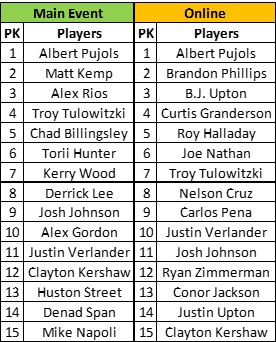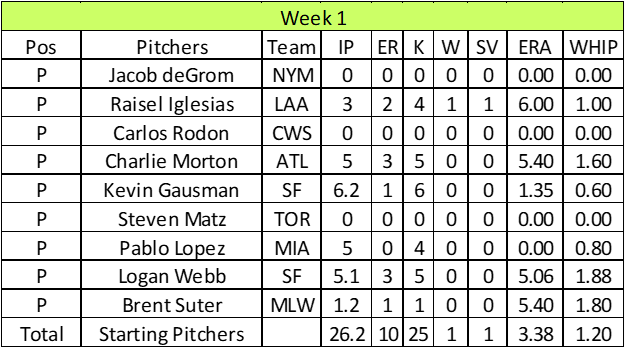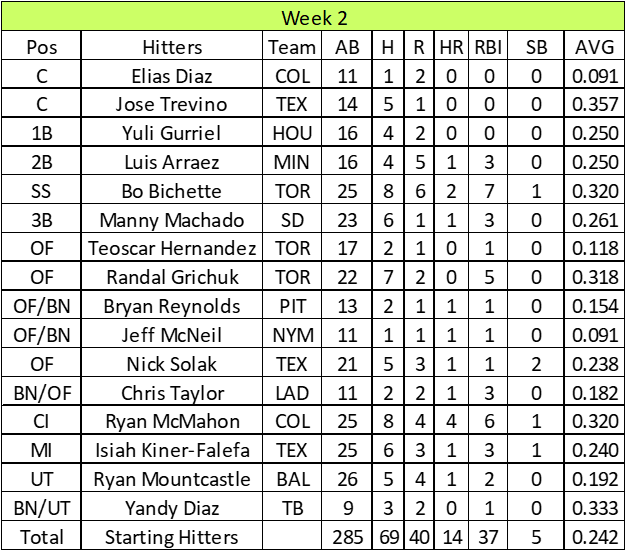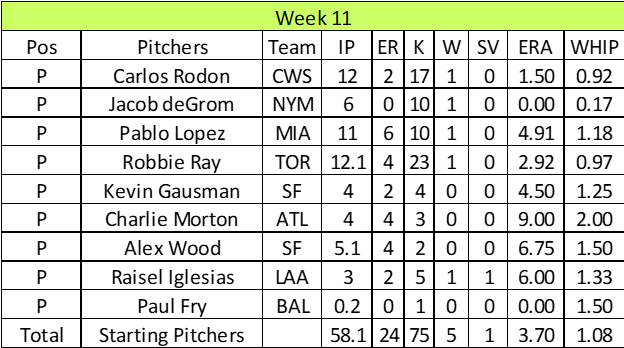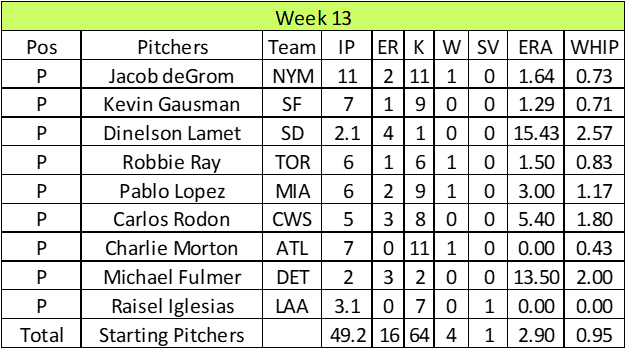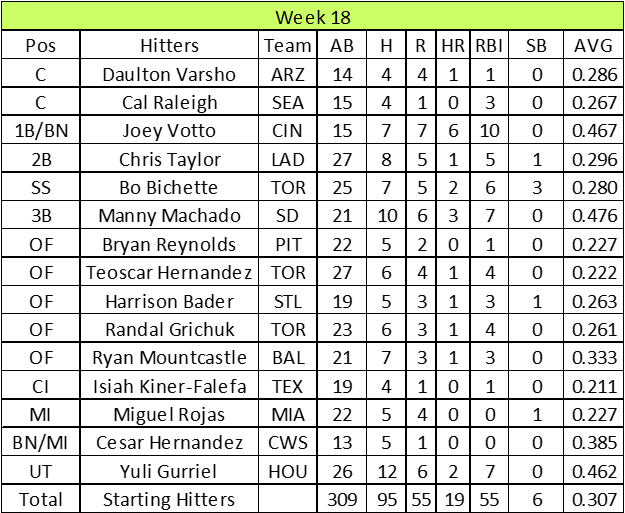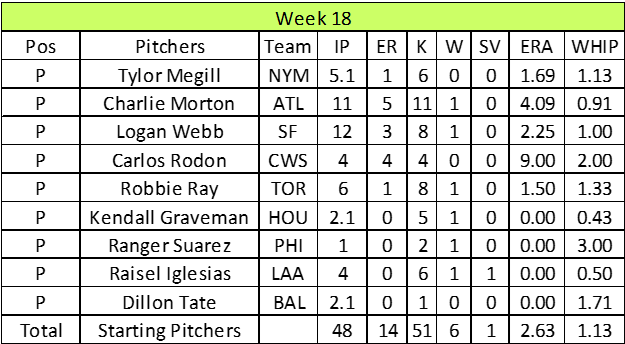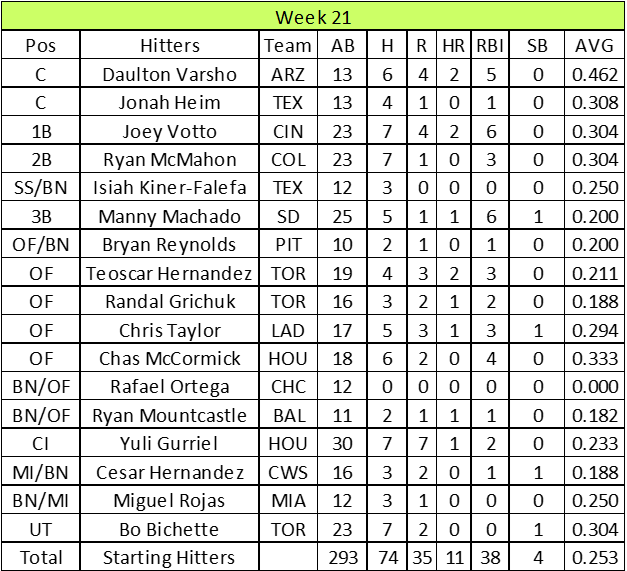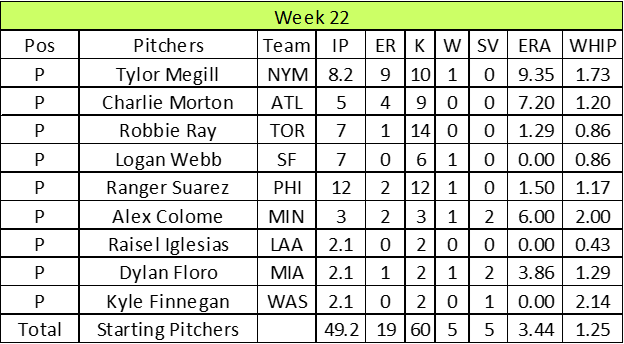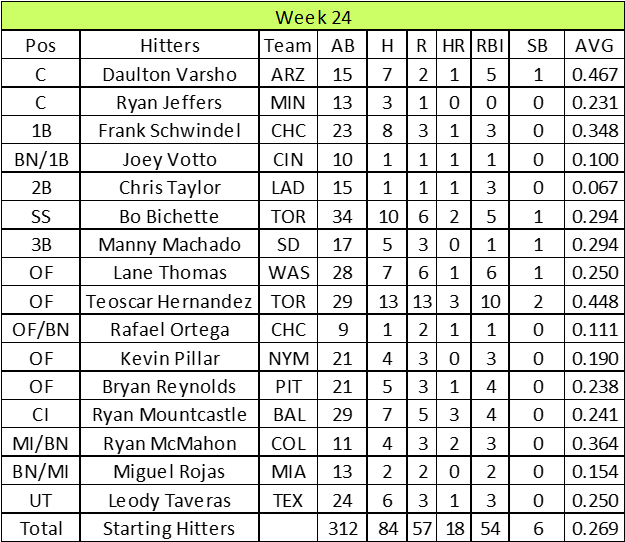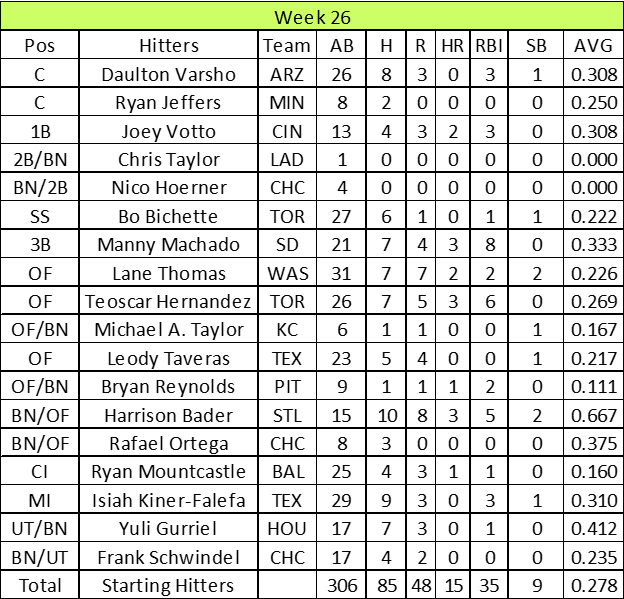The National Fantasy Baseball Championship completed its 18th season in 2021. After the final out was recorded on October 3rd, Phil Dussault had one of the most remarkable years in the history of the NFBC.
He won $324,000, highlighted by his main event title ($157,000), in which he secured 145 of a possible 160 league points in a 15-team league with five hitting and pitching categories. His two other main event teams came in 3rd ($32,000) and 24th ($8,800) overall out of 645 entries.
In addition, Dussault won the Auction Championship ($20,000 plus $20,000 for winning his league – $2,500 entry) and made a run at the “Triple Lindy” by pushing to second overall in the online championship, where the winner takes home $125,000. For his efforts in this event, he won another $39,000 ($30,000 for 2nd overall and $9,000 for winning his league with a $1,500 entry).
In the online championship at the NFBC, most of the 2,388 entries paid $350 to compete in 12-team leagues. Each owner tries to win their league plus have their stats ranked overall to see who finishes with the best team.
Dussault came in first and second in two $2,500 Draft Champion Leagues to win another $27,500. The majority of entries in this format (15-team leagues with 50-round drafts and no in-season management) come from $150 and $400 leagues.
The NFBC competition started in 2004 with 195 teams by Greg Ambrosius, who envisioned building a “fantasy field of dreams.” However, in the contest's first year, the event fell 105 entries short of the projected prize pool, leaving some trepidation about the future success and profitability of the event for Krause Publication.
In 2021, the NFBC had over 21,000 entries with a wide range of entry fees. The high-stakes contests comprise of the Main Event (645), Online Championship (2,388), Draft Championship (4,545), Best Ball Cutline Championship (1,960), and Auction Championship (120), which equals 9,658 teams.
For the casual observer, Dussault’s winnings and success are impressive, but most people would have a double-take on his investment in fantasy baseball and wonder how and why someone would put up so much money (over $15,000 in entries) to play fantasy baseball. The answer, in his case, was to reinvest his winnings.
In 2019, Dussault finished eighth overall in the main event ($6,000), leading to his first league title ($7,000). The following season, he won three more main titles and $26,800. His success allowed him to reinvest in his opinion again in 2021.
The golden bar in the NFBC for the main event came in 2009 when Lindy Hinkleman took down the main event title ($100,000) and the Online Championship ($40,000), plus another $75,000 bonus for winning both events. Hinkleman built his teams around these 15 players:
The combination of Justin Verlander and Clayton Kershaw won 27 games over 411 innings with a 3.18 ERA and 1.175 WHIP while delivering 454 strikeouts. Ultimately, the growth and dominance of Clayton Kershaw set the stage for duel ace theory in team development over the next couple of seasons.
Hinkleman won his second NFBC main event overall title in 2011 while catching another great season from Justin Verlander (24-5 with a 2.40 ERA and 250 strikeouts over 251 innings).
Dave Potts parleyed his 2012 NFBC main event title ($100,000) to a pair of million-dollar wins in the daily games and a new career at Roto Grinders.
Chris Fessler won the main event in 2019, adding a second impressive Online Championship ($125,000) in 2021. If Fessler hadn't dominated his league and the overall competition, Dussault could have won another $170,000 ($75,000 insurance bonus and $95,000 from improving from second to first).
Here’s a look at the final stats for hitting and pitching for the 2021 NFBC overall champion:
Reflection is a big part of winning in fantasy sports. Many draft styles succeed. Each fantasy owner has to decide which path best fits their strengths. The trick is finding a plan that works over time.
This season in the NFBC, Phil Dussault walked away with a boatload of cash ($324,000) and a lifelong permission slip from his girl to play fantasy sports.
Last March, I listened to the Dead Pull Hitter podcast between Dussault and Rob DiPietro. They were reviewing previous successes, and I remember Dussault talking about streaming hitters while knowing he built his teams with two front-end aces. My first thought was that theory made sense in 2020 over a COVID-19-shortened baseball season, but churning bats typically don’t end well in 15-team leagues over 162 games.
Before I look into how Dussault managed his main event team, I wanted to reflect on his winning draft to see his wins and losses. Here’s his team from the third slot in a 15-team league:
1 – SP Jacob deGrom, New York Mets
Over 15 starts, deGrom lived up to expectations, leading to a 1.08 ERA and 0.55 WHIP over 92 innings with seven wins and 146 strikeouts. Despite missing half of the season, he still finished 20th by FPGscore (+3.64).
2 – 3B Manny Machado, San Diego Padres
On draft day, Machado appeared to be a value based on his explosive success with the Padres in 2020 (.304 with 44 runs, 16 home runs, 47 RBI, and six steals over 224 at-bats) over 60 games. He finished with a steady balance season (.278/92/28/106/12), but 21 other players finished higher than him by FPGscore (+3.94). In the end, his stats kept Dussault in the game.
3 – SS Bo Bichette, Toronto Blue Jays
Many fantasy teams that won in 2021 had a piece of the Blue Jays’ offense. They led the majors in home runs (262), third in runs (857), and second in RBIs (816). Bichette finished as the second most impactful hitter (+9.91) by FPGscore. He hit .298 with 121 runs, 29 home runs, 102 RBI, and 25 stolen bases over 640 at-bats.
4 – CL Raisel Iglesias, Los Angeles Angels
With the elite pitching inventory having a drop-off late in the fourth round, Dussault focused on building the backend of his bullpen. His 34 saves ranked fifth in baseball. Iglesias added seven wins with a 2.57 ERA, 0.93 WHIP, and 103 strikeouts over 70 innings.
5 – CL Trevor Rosenthal, Oakland A’s
Rosenthal didn’t pitch an inning in the majors in 2021 after developing a right shoulder injury just before the start of the year. A bust pick in the fifth round can be devastating to a fantasy team, but saves can be found in the free-agent pool, especially early in the season.
6 – OF Teoscar Hernandez, Toronto Blue Jays
Despite some concern with Hernandez’s free-swinging style at the plate, he proved his success over 60 games in 2020 was not a fluke. He finished with the best season of his career (.296 over 550 at-bats with 92 runs, 32 home runs, 116 RBI, and 12 steals), giving Dussault 305 runs, 89 home runs, 220 RBI, and 49 steals over his first three batters.
7 – SP Charlie Morton, Atlanta Braves
Halfway through June, Morton had the feel of a wasted selection. He had a 4.50 ERA and 1.30 WHIP over 55 innings while allowing seven home runs. Over his final 22 games, he went 9-3 with a 2.71 ERA, 0.90 WHIP, and 141 strikeouts. Only 10 starting pitchers had a better season by FPGscore (+5.23).
8 – SP Kevin Gausman, San Francisco Giants
Both Morton and Gausman were hot names in the high-stakes market last spring. Gausman flashed in 2020 in his first year with the Giants. He didn’t lose a beat over his 33 starts, leading to his best season (14-6 with a 2.81 ERA, 1.042 WHIP, and 227 strikeouts over 192 innings). His success placed him seventh by FPGscore (+6.92) for starting pitchers.
9 – 2B Jeff McNeil, New York Mets
McNeil ended up being a bust for Dussault, but he only used him for 79 at-bats (.215 with 17 runs, two home runs, seven RBI, and one steal). A mid-May hamstring injury was early enough to find a viable replacement in the free-agent pool. McNeil missed about five weeks with his issue.
10 – SP Pablo Lopez, Miami Marlins
Over his 19 appearances, Lopez posted a 3.03 ERA, 1.09 WHIP, and 111 strikeouts over 101 innings. He finished with five wins despite recording only one victory over his first 12 starts. Lopez pitched in only one game after the All-Star break due to a right shoulder injury. Dussault used him for 90.1 innings (four wins, 3.10 ERA, 1.14 WHIP, and 95 strikeouts). Lopez finished the year as the 107th rank pitcher by FPGscore (-2.88) due to a lack of wins and the depth of his season.
After 10 draft picks, he has four starting pitchers, two closers, and four batters. His pitchers combined for 40 wins and 34 saves with a 2.77 ERA, 0.978 WHIP, and 696 strikeouts over 548.1 innings. His four bats hit .288 with 312 runs, 91 home runs, 327 RBI, and 50 steals over 1,813 at-bats.
His team has two whiffs (Trevor Rosenthal and Jeff McNeil) in his foundation build to his roster. Later in his team research, we’ll see how he addressed those issues.
11 – OF Nick Solak, Texas Rangers
Forty-four games into Solak’s season, he looked like a winning selection after hitting .269 over 167 at-bats with 31 runs, eight home runs, 21 RBI, and two steals. Unfortunately, Solak hit himself out of the majors over his next 34 games (.185 with nine runs, one home run, 12 RBI, and one steal over 124 at-bats). Dussault rode Solak for 258 at-bats (.240/39/8/27/2) before looking for an upgrade on the waiver wire.
12 – 1B Ryan Mountcastle, Baltimore Orioles
Cheating batters over the first third of his draft led to Dussault adding Mountcastle (178th player drafted) as the 16th-ranked first baseman by NFBC ADP over the final two weeks in March. He came to the majors with a 25/80 skill set while expecting his batting average to be an advantage. In the end, Mountcastle exceeded expectations in power (33) while offering steady production in runs (77) and RBI. He also chipped in with four steals while underperforming in batting average (.255). His final stats ranked him 61st by FPGscore (+0.09) for batters.
13 – SP Dinelson Lamet, San Diego Padres
Temptation probably got the best of Dussault by adding Lamet in the 13th round. He posted an electric 12 starts in 2020 (3-1 with a 2.09 ERA, 0.86 WHIP, and 93 strikeouts over 69 innings), but his ADP was free-falling in late March (158 – 88 from 10/1 to 4/1) due to concerns with the health of his right elbow. In the end, Lamet pitched only 11.1 innings for Dussault’s team (47 innings for the season).
14 – OF Kyle Schwarber, Chicago Cubs
Schwarber offered plenty of power (105 home runs and 236 RBI over 1,570 at-bats) from 2017 and 2020, but he had a platoon feel while adding a drag in batting average (.229). After missing the first six games, Schwarber didn’t offer much help (.190 over 84 at-bats with nine runs, two home runs, and seven RBI) to a fantasy team over the next month. He turned into an absolute home run beast over his next 173 at-bats (.283 with 31 runs, 23 home runs, 46 RBI, and one steal), helping Dussault’s team (.263/64/25/51/1) vault up the standing nightly over the latter half of June. A hamstring injury cost Schwarber two and a half months of the year.
15 – 3B Ryan McMahon, Colorado Rockies
Over the first two and half months of the season, McMahon hit .257 over 253 at-bats with 44 runs, 16 home runs, 44 RBI, and three steals. He lost his power stroke over his final 80 games (.251 with 36 runs, seven home runs, 42 RBI, and three steals over 275 at-bats), making McMahon a challenging manage over the second half of the season. Dussault either caught the best part of his season (.277/61/19/65/3 over 343 at-bats) or micro-managing his at-bats at home (.278/54/12/46/2) or against right-handed pitching (.264/67/19/65/6).
16 – SP Drew Smyly, Atlanta Braves
Smyly was a fourth pitcher drafted by Dussault who showed growth and possible promise over a shortened schedule in 2020. He pitched well for the Giants over 26.1 innings (2.01 ERA, 1.101 WHIP, and 42 strikeouts) while underachieving for most of his major league career due to injuries. After two poor starts (5.73 ERA and 11 strikeouts over 11 innings), Dussault dumped him back into the free-agent pool after Smyly landed on the injured list with a left forearm issue.
17 – SP Robbie Ray, Toronto Blue Jays
Ray had a phenomenal breakthrough season (13-7 with a 2.84 ERA, 1.04 WHIP, and 248 strikeouts over 193.1 innings). He flashed in 2017 (2.89 ERA, 1.15 WHIP, and 218 strikeouts over 162.0 innings), but his lack of command led to three straight years of regression from 2018 to 2020 (4.53 ERA and 1.43 WHIP). From October 1st to April 1st, Ray had an overall ADP of 336 (22nd-round pick in 15-team leagues). He moved to pick 260 in March. When looking at these types of breakout players, I always want to know if a fantasy owner targeted this player (drafted ahead of ADP) or if the player slid to him at market value or below. Dussault added him with the 243rd selection, so he clearly respected him late in March. Ray finished as the seventh-highest pitcher by FPGscore (+7.12).
18 – OF Bryan Reynolds, Pittsburgh Pirates
Reynolds was a target of mine as well in drafts in the NFBC, but I looked for him in the 19th round in most drafts. He hit .302 with 93 runs, 24 home runs, 90 RBI, and five steals, which fell in line with my outlook in February of 2021. Reynolds finished as the 33rd-ranked player by FPGscore (+2.34). Dussault used him for 477 at-bats (.291/78/21/77/4).
19 – OF Chris Taylor, Los Angeles Dodgers
The threat of Gavin Lux possibly emerging in 2021 led to Taylor almost having a utility role heading into the start of the year. Over the Dodgers’ first six games, he made only two starts. By the end of the first three months, Taylor saw action in 75 games, leading to a .262 batting average with 55 runs, 10 home runs, 39 RBI, and seven steals. He finished the year with a career-high in runs (92) and RBI (73) while chipping in with 20 home runs and 13 stolen bases. Dussault never targeted any pure-speed players after Bo Bichette, so Taylor’s speed helped him improve his standings in that category. His batting average (.254) had regression from 2019 (.262) and 2020 (.270).
20 – SS Isiah Kiner-Falefa, Texas Rangers
Texas gave Kiner-Falefa 635 at-bats, helping his success in runs (74) and stolen bases (20). He finished the year with a .271 batting average with short outputs in home runs (8) and RBI (53). His edge in speed led to Kiner-Falefa finishing 71st in FPGscore (-0.82). Dussault needed his stolen bases, leading to him being in his starting lineup for 538 at-bats (.264/64/7/42/15).
21 – 1B Yuli Gurriel, Houston Astros
Gurriel led the American League in batting average (.319). He offered steady production in runs (83) and RBI (81) while only adding 15 home runs, leading to the 59th ranking in FPGscore (+0.11). His ADP was 294 over the final two weeks of March in the NFBC. Dussault added Gurriel with the 303rd selection in the draft. However, he only had him in his lineup for 393 at-bats (.326/65/12/64/1).
22 – SP Logan Webb, San Francisco Giants
Over his first seven games, Webb allowed 19 runs and 50 baserunners over 32 innings. Late in May, he landed on the injured list with a right shoulder issue, leading to 40 missed days in the majors. He went 7-0 over his final 17 starts with a 2.63 ERA, 1.02 WHIP, and 104 strikeouts over 99.1 innings. Dussault had him in his starting lineup for 10 of his 11 wins with a 2.54 ERA, 1.12 WHIP, and 129 strikeouts over 120.2 innings. Webb ended the year as the 39th most valuable pitcher by FPGscore (+1.62).
23 – OF Randal Grichuk, TOR
Grichuk was the third hitter drafted by Dussault, who played for the Blue Jays. His theme looked to take advantage of Toronto’s COVID-19 ballparks (Tampa and Buffalo). He hit over 20 home runs for the fifth season, while his other stats (runs – 59, RBI – 81, and batting average – .241) finished with an overall negative rating. Dussault caught most of Grichuk’s best days (.244 with 51 runs, 20 home runs, and 72 RBI over 401 at-bats).
24 – C Elias Diaz, Colorado Rockies
Diaz’s lifeline on this roster lasted only 19 at-bats (.105 with two runs). He is owed $192.75 of Dussault’s winning ($157,000) for his effort.
25 – SP Carlos Rodon, Chicago White Sox
If Dussault were in Las Vegas playing blackjack, he would have been kicked out of the casino after scoring a 21 in eight of his first 11 pitcher selections. Rodon came in 2021 with a 4.28 ERA and 1.36 WHIP over his previous 397.1 innings while battling injuries over the past four years. He went 13-5 with a 2.37 ERA, 0.96 WHIP, and 185 strikeouts over 132.2 innings. Rodon finished 13th in FPGscore (+4.98).
26 – SP Steven Matz, Toronto Blue Jays
The edge in the home ballpark for pitching wasn’t a consideration for Robbie Ray or Matz. Pitching in the AL East in small parks tends to invite disaster showings. Matz finished the year with a 3.82 ERA, 1.33 WHIP, and 144 strikeouts over 150.2 innings. The best part of his game was wins (13). Dussault hit on so many arms before him, so Matz only pitched 53.2 innings for him (six wins with a 3.86 ERA, 1.19 WHIP, and 60 strikeouts). I’m guessing that he used him primarily for double starts.
27 – 2B Luiz Arraez, Minnesota Twins
The drawing card for Arraez comes from batting average, but he is just about a zero in speed and power. As a result, he stuck around the roster for only 86 at-bats (.279/9/1/9).
28 – SP Matt Shoemaker, Minnesota Twins
The luster with Shoemaker lasted for one start (one run over six innings with five strikeouts). The Twins gave him nine more starts (6.50 ERA and 1.56 WHIP) before removing him from the starting rotations. Dussault cut bait after four games (5.49 ERA and 1.32 WHIP over 19.2 innings).
29 – C Jose Trevino, Texas Rangers
Trevino had a hit in 10 of his first 11 games, but he only had four runs with no home runs or RBI. His lack of production (.297 over 74 at-bats with eight runs, one home run, and two RBI) led to Dussault surfing the catching waiver wire for most of the season.
30 – RP Brett Suter, Milwaukee Brewers
His only game pitched for the winning roster came on April 3rd (one run over 1.2 innings with three hits and one strikeout), earning him $98.38 for his appearance in the starting lineup. However, despite making one open start, Suter ended the year with 12 wins with a 3.07 ERA, 1.31 WHIP, and 69 strikeouts over 73.1 innings.
Before I take a look at his in-season pickup and team management, here are some quick outtakes from Dussault’s draft:
His theory on cheating catchers led to him using 12 options for the year. They combined to hit .225 with 83 runs, 29 home runs, 88 RBI, and five steals over 724 at-bats. Daulton Varsho led the way with a .268 batting average over 228 at-bats with 33 runs, 11 home runs, 36 RBI, and five steals after being picked up over the second half of the season.
Only four of his batters had over 500 at-bats (Bo Bichette – 640, Manny Machado – 549, Teoscar Hernandez – 545, and Isiah Kinder-Falefa – 538). Dussault finished with 7,738 at-bats (ninth-highest total out of 645 teams).
Seven of his drafted players hit over 20 home runs. Joey Votto was his best-hitting pickup (.298 over 282 at-bats with 55 runs, 28 home runs, and 76 RBI – insane production for half a season).
Other than catcher, Dussault added 18 batters. They hit .264 over 1,568 at-bats with 241 runs, 70 home runs, 216 RBI, and 26 steals.
After two closers over his first five selections, only his 30th-round player had a reliever pitcher designation (Brett Suter – he hoped he would get a chance in the Brewers’ starting rotation).
He covered the injury to Trevor Rosenthal and his shortfall in saves with 12 relievers in the free-agent pool. They combined for 11 wins, 45 saves, a 1.93 ERA, and 123 strikeouts over 120.1 innings. Ranger Suarez also worked as a swingman for him (four wins, three saves, 1.36 ERA, and 67 strikeouts over 59.2 innings).
The only help needed in the starting rotation came from four other arms – Alex Wood, Tylor Megill, Caleb Thielbar, and Vince Velasquez. They combined for seven wins, a 4.93 ERA, and 104 strikeouts over 104 innings.
Ten of his 12 starting drafted hitters (excluding catchers) finished with over 500 at-bats. In 2021, 86 batters reached that 500 at-bats. In essence, he had 11.6 percent of the top-tier players in playing time, plus his waiver add of Cesar Hernandez finished with 570 at-bats. Joey Votto also saw everyday at-bats once Dussault added him. The other 14 teams in his league had to fight for the other 75 hitters with over 500 at-bats (5.4 per roster).
At the draft, he won the starting pitching side of the equation, thanks to two-thirds of his starting pitchers ranking in the top 20 by FPGscore.
The foundation of his hitting needed two fixes (Jeff McNeil and Kyle Schwarber after his injury in late June). Then, over the second half of the year, Dussault needed to massage some speed to hold off Emmett Ruland.
The next step in reviewing Phil Dussault’s 2021 NFBC main event overall championship is looking at his in-season team management (weekly lineup decisions and free-agent additions). The National Baseball Championship is a non-trading format, which forces a team owner to compete in all 10 Roto categories (batting average, runs, home runs, RBIs, stolen bases, wins, saves, ERA, WHIP, and strikeouts) to take home the top prize. A successful draft plan is necessary, but most key players must stay healthy and perform up to expectations.
Heading each season in the NFBC, fantasy owners have the data of past seasons, helping set target goals for each category. Here’s a look at the final stats targets from 2021:
To win an overall title, a fantasy team in the NFBC main event (15-team leagues) must rank in the top 20 percent in as many categories as possible, plus own a higher edge in three or more areas. The graph above shows the top 10 percent and 20 percent targets from 2021.
Dussault finished in the top 10 in six categories. Steals were a problem early in the year, but his edges in the other offensive categories allow him to force more roster spots to stolen bases over the final two months.
Once the season starts, fantasy owners can use the category goals as weekly checkpoints to see if they are on pace with previous results.
Typically, a baseball season lasts 26 weeks, including two short weeks (opening weekend and the All-Star break). Based on the top 20 % targets, a fantasy team must hit .261 with 42 runs, 12 home runs, 40 RBI, and five steals each week. You are ahead of pace if your team beats any of these stats.
On the pitching side, four wins are the ideal goal each week. However, the top 20 % in 2021 finished with 3.6 wins per week due to more teams using their bullpen more often. The goal in ERA (3.648) and WHIP (1.165) will always seem higher early in the year due to many pitchers getting off to good starts. A fantasy team needs 2.1 saves and 53 strikeouts each week to hit their category goals.
Major league baseball switched to starting the year on Thursday over the past couple of seasons, leading to a short Week 1 in the fantasy market.
Dussault’s team played well offensively out of the gate (.304 with 23 runs, six home runs, and 23 RBI) except for no steals.
His team had four starts and one closer over his first roster set. Fielding an entire pitching staff over the first short week tends to be challenging unless a fantasy owner wants to surf the dangerous waiver wire at the expense of his draft-day decisions.
Dussault swapped his 30th-round draft selection for 3B Yandy Diaz ($1) in the first waiver period before the season.
The catcher position was quiet again in Week 2 (6-for-25 with three runs). He rode hot weeks from Bo Bichette (.320/2/7/1) and Ryan McMahon (.320/4/6/1) to a steady week of overall production.
By the second week of the season, Dussault’s pitching staff had four double starts. He finished with a massive edge in strikeouts (89) while pushing up the standing in wins (4), ERA (2.80), and WHIP (0.96). Despite his success, Dussault did miss out on another win by Charlie Morton (one run over six innings with seven strikeouts).
The first replacement came at catcher with the addition of Luis Torrens ($26). He didn’t enter the bidding frenzy for Lou Trivino ($246) or Yimi Garcia ($228).
The best part of his stats in Week 3 was his volume of at-bats (321). Manny Machado and Bo Bichette combined for six stolen bases, setting the stage for a bump up the standing in speed. However, he lost some ground in home runs (8) and RBIs (33).
Dussault took a zero out of Drew Smyly while failing to secure a save. Overall, his pitching staff added another strong week in strikeouts (64), ERA (3.21) and WHIP (1.07).
Over the first three weeks of the season, Cesar Hernandez hit .161 with five runs, one home run, and two RBI over 56 at-bats. His slow start led to another owner dumping him into the free-agent pool. Dussault outbid another team $85 to $57, giving him a full-time option at middle infield. He also appeared to have an upgrade at catcher (Alejandro Kirk – $57), but he landed on the injured list for almost two months in early May.
His offense was a problem in Week 4, highlighted by a regression in at-bats (321 in Week 3 – 257 this week). His two catches went 2-for-19 with one run and one RBI. Despite five at-bats and no hits, Chris Taylor stole half of his bases for the week. Yuli Gurriel led the way with three home runs and 10 RBI. Randal Grichuk delivered a pair of home runs and four RBI over his 10 at-bats. Dussault lost ground on the field in batting average, runs, home runs, and RBI for the week.
Other than Matt Shoemaker (7.27 ERA and 1.73 WHIP), his pitching had another sensational week in wins (5) and strikeouts (74) while posting strength in his ERA (2.67) and WHIP (1.08). Dussault continues to roll with eight starters and one closer. Kevin Gausman, Jacob deGrom, and Logan Webb combined for three wins and 43 strikeouts while allowing five runs over 34 innings (1.32 ERA).
Typically, in the NFBC, a pitching staff will line up for multiple double starts once over three weeks. The goal is to gain ground in one of those weeks, hold serve in another, and potentially lose ground in the third cycle. Rostering a deep starting staff allows a fantasy owner to sprinkle in some extra starts without going to the free-agent pool. Ultimately, the quality of arms from week to week on the waiver wire brings more risk than reward in most scoring periods.
In Week 4, Dussault had four hitters (Teoscar Hernandez was on the injured list) and three pitchers (Robbie Ray, Dinelson Lamet, and Drew Smyly) on his bench.
Despite a great push up the pitching standings, Dussault couldn't resist another intriguing upside arm with the addition of Alex Wood. As a result, he won his $35 to $27 while dumping one of his extra bench bats. Pitching in San Francisco should push Wood well above Matt Shoemaker on his roster. His only other move was to take another Jose Trevino ($7) at catcher.
The bounce in Dussault’s offensive step started to emerge in Week 5. Eleven players hit home runs, and his catchers (7-for-23 with nine runs, three home runs, and six RBI) even had a pulse. Isiah Kiner-Falefa led the way with six runs, three home runs, four RBI, and one steal over 26 at-bats. Chris Taylor was the impact player in runs (10).
Overall, his team jumped up the standings in runs (64) with improvement in home runs (16), RBI (45), and batting average (.279).
Only one of his pitchers lined up for double starts in Week 5. Carlos Rodon turned in a dominating outing (one run over six innings with 12 strikeouts and a win). He won five of his nine starts, leading to a slight push in wins (5) and strikeouts (58). His ERA (3.74) was hurt by Charlie Morton (nine runs over 10.2 innings) and Steven Matz (14.73 ERA).
His first attempt to pick up saves in the free-agent pool came after Week 5. He threw a dart at Mychal Givens for $12 with no other owners looking his way.
Despite taking a zero from Alejandro Kirk, his team finished with 303 at-bats. Home runs (7) were tough to come by, but runs (51), RBI (46), and stolen bases (7) all moved in a positive direction. His three other Blue Jay bats combined for 23 hits in 84 at-bats with 14 runs, three home runs, 21 RBI, and four steals.
Charlie Morton took another beating, but all six runs allowed over two-thirds of an inning were unearned. The only other starting pitching with risk was Steven Matz (7.20 ERA and 1.60 WHIP), but he did earn a win with 10 strikeouts. Dussault kept pace in wins (4), strikeouts (51), and ERA (3.28), with a slight issue in WHIP (1.24). Pablo Lopez only allowed one run over his previous 24 innings, but he still doesn’t have a win on the year over seven starts.
After losing Alejandro Kirk to an injury, Dussault pushed hard for William Contreras ($55 to $41) while dumping his other catcher for Austin Hedges ($7). The closing stash of Mychal Givens lasted only one week. He traded him in for Caleb Thielbar ($13).
His team turned in a solid five-category week, highlighted by Bo Bichette, Manny Machado, Teoscar Hernandez, and Kyle Schwarber (30-for-92 with 17 runs, six home runs, 25 RBI, and four stolen bases). His new toy at catcher (William Contreras) had five hits in 16 at-bats with two home runs and three RBI). Unfortunately, his second catcher looks to be a one-week player after delivering no production.
His team had three double starters, leading to more gains in wins (6) and strikeouts (81). The bullpen flier on Caleb Thielbar turned into a bad idea after he allowed five runs over 3.1 innings. His struggle, paired with a poor week from Pablo Lopez (7.71 ERA and 1.93 WHIP), led to a weaker ERA (3.94) and WHIP (1.93). Dussault was without Jacob deGrom for this scoring period.
After six and a half weeks, his team has 28 wins, six saves, and 442 strikeouts. He looked to be ahead of pace by 87 strikeouts and four wins. Dussault only has six saves, putting him behind the top 20 % by about eight saves.
Saves were the top order of business this week on the waiver wire. Dussault won Michael Fulmer $66 to $47. He pushed hard to solve his second catcher issue by adding Pedro Severino ($44). Vince Velasquez ($22) drew his attention after throwing the ball well over three starts (three runs over 17 innings with 19 strikeouts).
Week 8 ended with his best production in RBI (54), thanks to five players having five RBI or more. His team finished strength in at-bats (319) with a slight edge in home runs (15). Kyle Schwarber finished with a team-high three home runs, while Isiah Kiner-Falefa was the only player to steal any bases (3).
A late scratch by Jacob deGrom led to an empty pitching line for Dussault’s team. However, the rest of his staff responded with an excellent week (1.36 ERA and 0.73 WHIP). His closing flier with Michael Fulmer led to a pair of saves and his first week with more than one save. He fell short of his goals in wins (3) and strikeouts (47) due to the deGrom issue.
In early May, a broken left thumb led to Joey Votto getting dumped into the free-agent pool by Team Seals on May 9th. No team bid on him the next week, leaving the door open for Dussault to scoop him up this week for $28 after losing Jeff McNeil with a hamstring issue. I’m not sure if he wins the overall without picking up Votto. After returning from the injured list in the second week of June, he hit .278 over his final 342 at-bats with 64 runs, 31 home runs, and 82 RBI. Dussault had him in his lineup for 282 at-bats, leading to 55 runs, 28 home runs, and 76 RBI.
At-bats were a problem at catcher and first base in Week 9. Manny Machado also missed half of a week with a minor issue. In addition, Nick Solak came up short for the fourth straight week (he hit .200 in May with 17 runs, one home run, and 10 RBI over 110 at-bats). Teoscar Hernandez led his team (.308 with five runs, two home runs, five RBI, and two steals). Overall, he lost ground in runs (37), RBI (34), and batting average (.229).
Raisel Iglesias has his first two-save week of the year, while Michael Fulmer chipped in with a vulture win. Steven Matz pitched well in a double-start week (2.31 ERA with a win and 14 strikeouts). Kevin Gausman tossed 11 shutout innings, leading to a pair of wins and 16 strikeouts. His team turned in another dominating week in pitching (five wins, 75 strikeouts, 1.70 ERA, and 0.886 WHIP).
Dussault’s success in starting pitching allows him more flexibility to chase saves over the final four months of the year. However, after this waiver period, he only has 11 saves. His next flier for his bullpen was Paul Fry ($28).
Ryan Mountcastle and Bryan Reynolds combined to hit .375 over 48 at-bats with 12 runs, six home runs, and 16 RBI. Mountcastle only hit .225 over his first 173 at-bats with four home runs, 20 RBI, and three steals. Unfortunately, his catchers are fading again, and Nick Solak has become a problem. Dussault lost ground in stolen bases for the week, while the remaining categories finished in a favorable area.
Dussault went with three relievers and six starters for the first time all season. Unfortunately, Michael Fulmer didn’t pitch, but his team did get two saves. Amazingly, the Mets scored enough runs for Jacob deGrom to pick up a pair of wins while pitching 13 shutout innings with 19 strikeouts. Unfortunately, Vince Velasquez turned into a wood tick after allowing nine runs in seven innings, potentially leading to a trip back into the free-agent pool. Alex Wood struggled as well (seven runs over 3.2 innings). Nevertheless, his team ended up on the positive side in wins (5) and strikeouts (65), with a slight dent in his ERA (4.73).
As has been the theme for most of the first two months, Dussault was looking for saves and improving his catching on the waiver wire. I’m sure he debated his bid number for Graveman all weekend. In the end, Dussault won him $94 to $17. Each week, a fantasy owner in the high-stakes market needs to have a feel for a player’s value in the free-agent pool, which falls into three categories – must-have, market value, and token bid. Graveman was a must-have for this team at this point in the year. Dussault also pushed hard for Ryan Jeffers ($19 to $3).
The Joey Votto experiment didn’t take long to shine. His success (two home runs and nine RBI) helped Dussault to his best power week (22 home runs and 64 RBI) of the year. Thirteen players hit a ball over the fence while Isiah Kiner-Falefa carried him in steals (5). Bo Bichette finished with the best overall hitting week (.444 with 10 runs, two home runs, five RBI, and one steal). Dussault hit on both ends of his hitting decision of the week. Bryan Reynolds and Ryan McMahon combined for five runs, four home runs, and seven RBI. Overall, his team gained ground in all five categories.
The starting pitching freight train continues to deliver wins (5) and strikeouts (75), highlighted by a monster week by Robbie Ray (one win with a 2.92 ERA and 23 strikeouts over 12.1 innings). Three other arms had double-digit strikeouts. Raisel Iglesias has been up and down over the first two and half months (4.15 ERA), but he does have four wins and 11 saves. Charlie Morton and Alex Wood struggled in their starts (eight runs over 9.1 innings).
Dussault doesn’t add any player in this waiver period.
Dussault had a massive showing from his offense for the second week in a row. Kyle Schwarber turned into a beast (.385 with seven runs, six home runs, and 11 RBI), while Ryan Mountcastle and Bryan Reynolds combined to hit .449 with 10 runs, six home runs, and 13 RBI. Twelve batters hit a ball over the fence. His team finished with a ton of at-bats (319), leading to gains in four categories (runs – 54, home runs – 22, RBI – 70, and batting average – 0.307) in the overall standings.
The quest to make up ground in saves was evident in Week 12. Dussault used four relievers and five starters. This type of roster structure aims to hold serve in wins and strikeouts while moving up the standings in saves. Four of his starts failed to reach five innings, but he did secure three wins. Three pitchers on his bench combined for two wins, a 0.416 ERA, and 22 strikeouts over 21.2 innings. His four closers combined for a 7.36 ERA with 14 strikeouts and three saves over 11 innings. If Dussault wanted to win the overall, he needed to commit more pitching slots to saves. The plan fell short of expectations this week, but he should slowly pick up overall points in the save category over time.
Over his last five starts, Alex Wood allowed 21 runs, 35 baserunners, and six home runs over 24 innings with 23 strikeouts, leading to him getting dropped for Miguel Rojas ($13). He played well over the first three weeks in June (.344), but his stats fell short in the counting categories (two runs, one home run, four RBI, and two steals). His surge in power led Dussault to look for someone to chip in with some stolen bases. The struggles of Paul Fry pushed him away from the closing job in Baltimore. Drew Steckenrider ($17) pitched himself in the closing conversation in Seattle after a poor week by Kendall Graveman (three runs, five baserunners, and two home runs over four innings). He was also buying handcuff insurance.
This scoring period fell into the “keep pace” category. A good portion of Dussault’s offense came from Manny Machado, Bryan Reynolds, and Kyle Schwarber. They combined for 26 hits in 70 at-bats (0.371) with 14 runs, seven home runs, 21 RBI, and two steals. His at-bat total (313) remained strong, while William Contreras and Nick Solak are close to earning a one-way ticket off the roster.
Dinelson Lamet and Michael Fulmer pitched poorly, but the core of his pitching staff turned in another solid week. Dussault went back to a standard structure of seven starters and two closers. His only weakness came in saves (1). Kendall Graveman did pick up a pair of saves on his bench.
The chase for saves went four deep at the expense of the struggling Nick Solak and the injured Michael Fulmer and Dinelson Lamet. Jose Cisnero ($22) was a cover for Fulmer, while Paul Sewald ($3) worked as another possible closing handcuff in Seattle. In Baltimore's bullpen, Dussault took a second tour with Paul Fry ($7). Daulton Varsho ($14) fits his team perfectly if he can secure close to starting at-bats due to his possible help in speed.
Archie Bradley ($25) comes with closing experience, but he missed part of April and May due to an oblique issue. The wheels fell off the Hector Neris bus over the final three weeks of June (seven runs, 15 baserunners, and two home runs over 7.0 innings), opening a window for another arm to close in Philly.
The catcher position finished with only two hits over 24 at-bats, leading to only one run and two RBI. Joey Votto and Bo Bichette hit 0.400 over 50 at-bats with 10 runs, four home runs, and nine RBI. The power surge of Kyle Schwarber (three solo home runs) extended another week. Steals (4) remain flat while making some gains in runs (48) and home runs (17).
Despite using four relievers, Dussault kept pace in wins (4), thanks to an excellent week from Raisel Iglesias (two wins, three saves, and eight strikeouts over 5.2 innings). Kendall Graveman added a third win from his bullpen with a save. His front three starters combined for 44 strikeouts over 31.1 innings, but they posted a 4.31 ERA and only one win. Overall, Dussault had a nice four-category week with a season-high five saves for his pitchers.
After an incredible 29 games in June and early July (.288 with 23 runs, 16 home runs, and 30 RBI over 104 at-bats), Schwarber suffered a hamstring injury. So Dussault dumped him for Harrison Bader ($35) without ever saying goodbye. Essentially, Schwarber gave his team half of a season in power in 32 easy days. Bader missed all but 22 games (.219 with four home runs, nine RBI, and three stolen bases over 73 at-bats) over the first three months with forearm and rib issues. Over the next month, he hit .357 with 13 runs, five home runs, 18 RBI, and three steals over 84 at-bats.
Tylor Megill ($28) earned two spot starts in late June (five runs, 12 runs, and two home runs over 9.1). He gave Dussault July insurance for Jacob deGrom when he pitched well over five starts (1.04 ERA and 27 strikeouts over 26 innings).
Ranger Suarez ($28) picked up a save on July 3rd, triggering Dussault's interest in another closing arm. While working in a dual role between relieving and starting, he was a great find. Over his final 77 innings, he went 5-3 with four saves while posting a 1.52 ERA, 1.10 WHIP, and 81 strikeouts over 77 innings.
After gaining many offensive fantasy points in June, Dussault’s team came out flat in the first full week in July. His team lost some at-bats at catcher and outfield. Overall, he fell short of his targets in runs (37), home runs (6), and RBI (35).
He posted a dominating week in strikeouts (80) over 56.2 innings despite wheeling out four possible closers. Three of his starters pitched twice, leading to two wins. Ranger Suarez and Raisel Iglesias combined for four saves with a 1.35 ERA and 11 strikeouts over 6.2 innings.
Dussault left two winnings starts on his bench (Carlos Rodon and Robbie Ray). They combined to pitch 13 innings with one run, 19 strikeouts, and a win.
The last time Steven Matz pitched for his team came in Week 9 in a double-start week. He flipped him for Orlando Arcia ($6). The next dance catcher came with Jake Rogers ($2). Anthony Bender ($29) looked to be an upside arm with a chance at closing for the Marlins.
His team finished with a steady five-category showing over a half week of games during the All-Star break. Daulton Varsho chipped in with a pair of needed steals. Manny Machado (6-for-12 with five runs, one home run, and five RBI) was the best player for the week.
Lining up nine pitchers out of the All-Star break is challenging, with each major league team jockeying their starting pitchers over the weekend. He took a zero out of three arms while looking like he made two mid-week pitching moves (seems strange to see). Nevertheless, Dussault finished with another solid pitching week across the board.
He lost Pablo Lopez to a right shoulder injury (rotator cuff), leading to another quick drop for Mike Mayers ($2). Tyler Wells ($8) was another dart at the closing dartboard. Jake Rogers lasted only six at-bats before earning his way back to the free-agent pool. The next day, he was scratched from the Tigers’ starting lineup with an arm issue before landing on the injury report with a right elbow injury that required surgery in September.
After the All-Star break, Dussault’s offense didn’t lose a beat. Twelve batters smashed a home run, highlighted by Daulton Varsho (.474/3/8), Joey Votto (.455/3/8), and Chris Taylor (.414/5/6/1). In addition, his catching dart of the week (Cal Raleigh) provided a home run and four RBI. Bryan Reynolds and Harrison Bader hit a combined 0.463 with nine runs, three home runs, and 11 RBI. His team gained ground in batting average, runs, home runs, and runs batted in.
The quest to make up ground in saves continued in Week 17, leading to Dussault going with five starters and four relievers. His team picked five saves and a vulture win by Kendall Graveman. However, he had no double starters, and two of his arms pitched poorly (Kevin Gausman and Robby Ray). Dussault finished with only 37 pitched innings and showed weakness in strikeouts (39).
This week's only two additions from the waiver wire were Dillon Tate ($3) and Kyle Finnegan ($3). Both darts were dictated toward finding another option for saves.
As the calendar approached the end of July, Dussault put his feet on the desk and watched his batters produce almost every day. He finished with another impressive five-category week. His push in runs (55), home runs (19), and RBI (55) should create a cushion to add more base stealers to his starting lineup without losing too many overall league points. Joey Votto delivered seven runs, six home runs, and 10 RBI over only 15 at-bats, while Manny Machado found his hitting shoes (0.476 with six runs, three home runs, and seven RBI). Bo Bichette carried the stolen bases category (3).
Despite another four-closer week, his team only picked up one save, but his relievers secured three wins. He held serve in strikeouts (51) while gaining an edge in wins (6), ERA (2.63), and WHIP (1.13). Carlos Rodon failed to log over four innings for the second straight week.
With his team placed well in ERA and WHIP, Dussault moved on from the injured Jacob deGrom. August 1st should be an important date for fantasy owners when carrying injured players in the NFBC. If a player is going to be out for a month, the bench spot becomes more valuable for team flexibility. A four-week injury could quickly turn into six weeks or even season-ending. Dylan Floro ($23) was another shot at saves, while Dussault invested in two bats (Rafael Ortega – $8 and Chas McCormick – $3) to possibly help the stolen base category. The next dance at C2 came with the addition of Johan Heim ($3).
Daulton Varsho and Johan Heim combined for one hit in 33 at-bats with empty production. However, his new base stealing 0toy (Rafael Ortega) went 7-for-22 with three runs, one RBI, and two steals. Overall, Dussault’s team turned in a steady week with a slight gain in stolen bases (6). Chas McCormick was excellent on his bench (.350 over a home run, two RBI, and one steal).
The wheels started to come off the Tylor Megill bus (eight runs over 9.2 innings), but the rest of his starting staff pitched well. His three relievers delivered five saves. Other than wins (2), Dussault’s pitching staff had another winning week.
Whenever Dussault needed to win a player, his bidding was spot on the market. A late-July finger injury to Taylor Rogers ended up season-ending, creating a closing opportunity for Alex Colome ($34). No one fought for him on the waiver wire despite earning three saves for the week before being picked up. Over the final two months of the season, Colome posted a 3.38 ERA with two wins, 15 saves, and 22 strikeouts over 26.2 innings. Niko Goodrum ($6) was a flier for speed who returned from a month on the injured list. Unfortunately, he stayed healthy for only two days.
The highlights on offense came from Joey Votto (.346/4/3/8) and Teoscar Hernandez (.500/8/3/10/1) in Week 20. Unfortunately, other than batting average (.279), the rest of his offensive output fell slightly below his targets for the week. Since the All-Star break, his team averaged close to 300 at-bats per week.
Despite two of his relievers struggling, Dussault earned five saves for the second week in a row. He wheeled out four closers, and their two vulture wins helped him gain a notch in that category. His one strike for the week was a zero out of Carlos Rodon. Dussault finished with only 34.1 innings pitched, and weakness in strikeouts (39), but the rest of his pitching stats were outstanding for the week.
By now, you know the theme for this roster – find the next closing option. Dussault won Joe Barlow $24 to $19 while sending Niko Goodrum packing after landing back on the injured list.
The offensive momentum started to wane in the middle of August. Over the past two weeks, his team failed to gain ground in any offensive category. Dussault appeared to use six players to fill three roster slots, but those options combined for only 13 hits over 73 at-bats with one home run, three RBI, and one steal. Joey Votto (.304/2/6) and Daulton Varsho (.462/2/5) were the most productive players in Week 21.
The next man up in the starting rotation was Logan Webb. Over his seven starts since the All-Break, he went 3-0 with a 1.91 ERA, 0.97 WHIP, and 45 strikeouts over 42.1 innings. Charlie Morton, Robbie Ray, and Kevin Gausman combined for 32 strikeouts over 22.2 innings while adding a pair of wins. Dussault lined up five closers, but they delivered only three saves. Overall, his pitching output pushed slightly higher in the standings despite only having 45.1 innings on the week.
With no saves on the week, Dussault launched Joe Barlow back into the free-agent pool in favor of the speed Yonny Hernandez ($8).
After another quiet offense week, Emmett Ruland thought he had a chance to run down Dussault for the overall standings. His weakness in batting average (.199) had to be disappointing while taking a significant negative in RBIs (28). On the positive side, his at-bats (307) remained strong, with a slight uptick in steals (6). Ryan Mountcastle (.320/3/6) was the stud of the week.
Ranger Suarez gets his first chance at starting for Dussault after transitioning from the closing role for the Phillies. He turned in two stellar outings, leading to two runs over 12 innings with a win and 12 strikeouts. His four relievers produced two wins and five saves. Most of the damage to the pitching stats came from Tylor Megill (nine runs over 8.2 innings with a win and 10 strikeouts). Overall, his pitching gained some ground in wins (5), saves (5), and strikeouts (60).
Reflecting on last season, I was surprised to see Frank Schwindel ($6) in the player pool in a 15-team league late in August. He earned starting at-bats for the Cubs on August 3rd after Chicago cleaned house at the trade deadline. Over 24 games before Dussault picked him up, Schwindel hit .352 with 14 runs, four home runs, and 16 RBI. His bat stayed productive over his final 31 games (.338 with 28 runs, nine home runs, 24 RBI, and two steals over 133 at-bats). Roman Urias ($2) appeared to be an injury cover, while Dussault added two more catching options (Ryan Jeffers – $3 and Kevin Smith – $2).
The addition of Frank Schwindel instantly paid dividends. He went 12-for-26 with seven runs, five home runs, and 12 RBI. Despite having issues in two roster slots (270 at-bats for the week), Dussault hit his targets in runs (50), home runs (14), and RBI (48). Unfortunately, the knight in stolen base armor has yet to arrive as the season turns to the home stretch in September.
The chase for saves finally paid off in Week 23. His four relievers picked up seven saves. Robbie Ray turned in an impact week (two runs over 13.2 innings with two wins and 20 strikeouts). Logan Webb (one run over seven innings with 10 strikeouts) continued to be a beast.
Leody Taveras ($7) gave Dussault his possible speed out. The investment in Lane Thomas ($7) appeared to be another steal as Washington gave him starting at-bats from August 20th to September 4th (.310 with nine runs, two home runs, nine RBI, and one stolen base over 58 at-bats) after an injury to Victor Robles. Over the next two weeks after being added to Dussault’s roster, Thomas hit .271 with 13 runs, three home runs, 13 RBI, and one steal over 59 at-bats. Kevin Pillar ($1) failed to make a starting impact over the season's final three weeks. At this point of the year, his team had six hitters on his bench.
Dussault did his best to massage his hitting roster in September, but much of this week's success came from his core drafted players. Teoscar Hernandez led the way with 13 hits in 29 at-bats with 13 runs, three home runs, 10 RBI, and two stolen bases. His team finished with an edge in runs (57), home runs (18), RBI (54), and steals (6). Dussault started all three of his pickups from the previous week, and they combined to go 17-for-73 with 12 runs, two home runs, 12 RBI, and one steal.
The four-reliever plan worked to perfection again in Week 24 as they combined for a win and seven saves. Dussault’s starting pitching let him down in multiple starts, but Logan Webb (11 strikeouts) and Kevin Gausman (18 strikeouts) carried him to his quota in strikeouts (64) while adding four wins.
Dussault peeled back one of his top starters (Charlie Morton) in favor of another closing option (Andrew Chafin – $3). He also took a second dance with Yonny Hernandez ($4).
His only two stolen bases in Week 25 came from Leody Taveras. Bo Bichette (.304/3/10) led his offense to a steady week in runs (43) and RBI (45) while missing his targets in home runs (9) and batting average (.260).
With massive separation from the field in ERA, WHIP, and strikeouts, Dussault wheeled out five relievers in Week 25. They combined for another seven saves, giving him 39 saves over the previous seven scoring periods. Carlos Rodon gave him a zero for the week for the second time this season. His only win came from Robbie Ray (one run over seven innings with 13 strikeouts).
His focus in Week 25 on the waiver wire was the middle infield position. After dropping him two weeks ago, Dussault rebought Cesar Hernandez ($1). Unfortunately, Nico Hoerner ($1) failed to shine due to missing most of the final two months of the season. Michael Taylor ($2) was his only other addition.
The chase for steals materialized in Week 26. His team finished with a season-high nine stolen bases. Harrison Bader went 10-for-15 with eight runs, three home runs, five RBI, and two steals. However, Dussault did have an issue at second base (only five at-bats for the week). Manny Machado (.333/3/8) and Teoscar Hernandez (.269/3/6) were the other two star players for the week. Overall, his team only lost ground in RBIs (35).
He stayed with the combination of four starters and five relievers. His top three starting pitchers (Ranger Suarez, Robbie Ray, and Kevin Gausman) had double starts, leading to two wins and 37 strikeouts over 35.2 innings. His closers picked up two wins and four saves. For the week, Dussault maintained his edge in all five categories.
He added Nick Gordon ($2) and Yonny Hernandez ($2) with his final two additions. Both players offered more help in speed.
The season's final week ended with another steady offensive performance, highlighted by an uptick in stolen bases (8). Ten players hit home runs, and all 16 of his starting players had at least one RBI. Bo Bichette finished the season with 12 hits over 24 at-bats with seven runs, three home runs, four RBI, and two stolen bases.
With a comfortable lead in the overall standings, Dussault’s pitching staff cruised home with two wins, five saves, and 47 strikeouts over 44.1 innings while posting another solid week in ERA (3.05) and WHIP (1.13). Logan Webb and Ranger Suarez combined to allow four runs over 19 innings with two wins and 23 strikeouts. Dylan Floro was the best arm in his bullpen in Week 27 (no runs over four innings with six strikeouts and three saves.
Final Notes
Dussault picked up 58 players on the year, averaging $17.20 per player. His highest two winning bids were $94 and $85. For reference, his opposing bids came to $432 ($7.29 per player). Twenty-seven of his players added had no other recorded bids (other owners may have won players higher on their bid line).
His 12 catchers combined to hit .225 over 763 at-bats with 83 runs, 29 home runs, 88 RBI, and five steals.
Dussault spent $235 (12 bids) of his $1,000 free-agent budget on catchers. He only added three starting pitchers (Alex Wood, Vince Velasquez, and Tylor Megill) for a total investment of $85. Ranger Suarez finished the year as a starter, but his initial investment came as a reliever. His chase for saves on the waiver led to $425 in spending on 20 arms.
Forty-eight of his 82 saves come via the waiver wire. Dussault’s bench pitchers had 19 wins, eight saves, and 326 strikeouts over 291 innings with a 3.71 ERA and 1.17 WHIP.
Closing Thoughts
Last spring, I listened to the Pull Hitter’s Podcast, where Phil Dussault floated the idea of streaming batters. The thought process made sense in the 60-game COVID-19 season in 2020, but I thought it would be difficult to pull off over an entire season. In the end, his only steaming of hitters came at catcher. He came out of the draft with an excellent base to his offense as far as at-bats. Dussault fixed his two significant shortfalls with the additions of Cesar Hernandez and Joey Votto. After the All-Star break, he was in the right camps of multiple players gaining at-bats. Most of these options played well, and Dussault priced them correctly in the free-agent market.
As for the pitching side, his team was full of aces despite some major injuries to his top arms. In addition, the depth and strength of his draft on the starting pitching side allowed him to avoid bad double starts on the waiver wire, plus open up roster spots to address his shortfall in saves. In the end, his early lead in ERA, WHIP, and strikeouts allowed him the flexibility to run down the needed saves to win the overall title.




